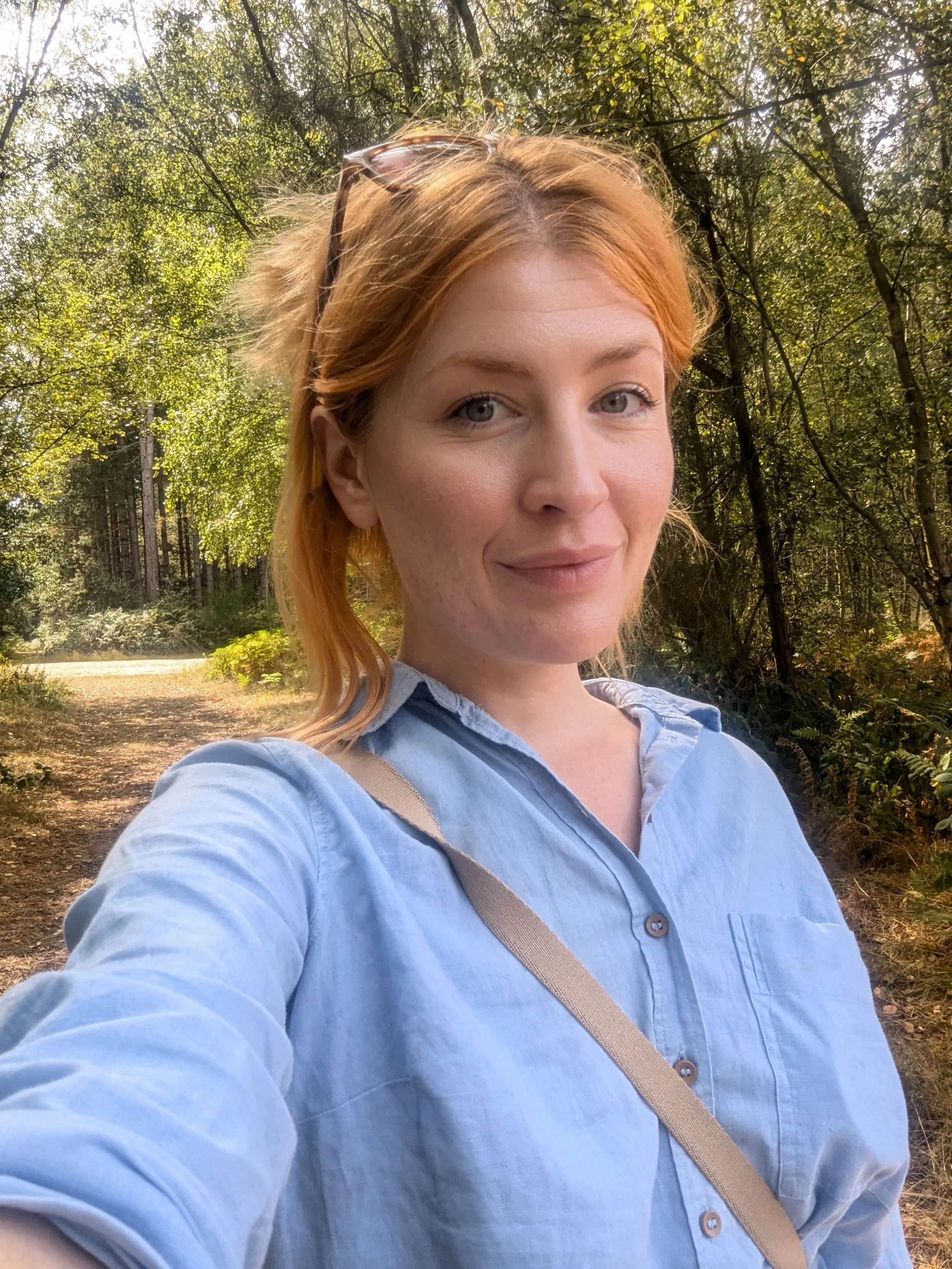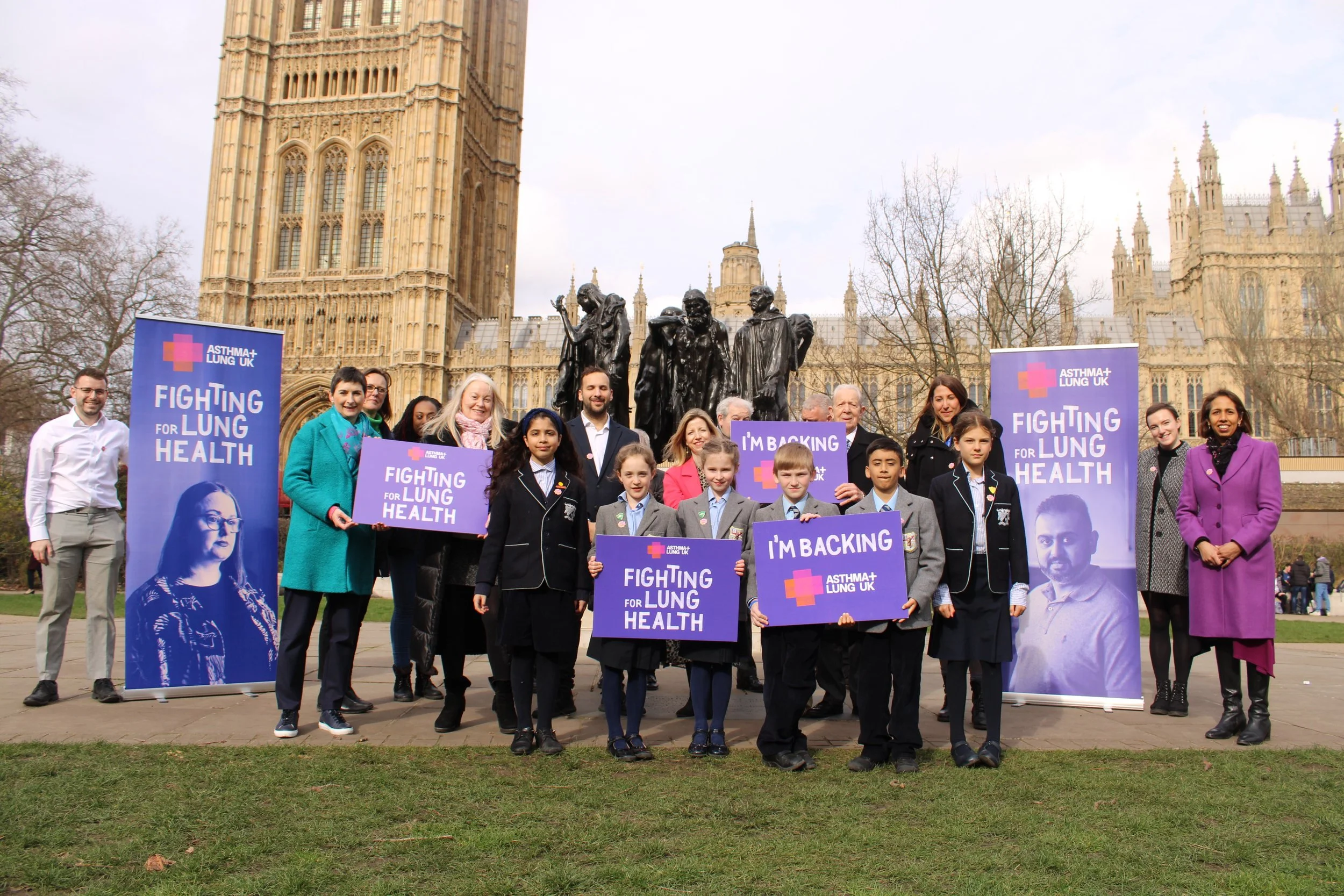Pneumonia almost left my young sons without their mum
After being struck down suddenly by pneumonia at 33 on her son’s third birthday, our supporter, Jardine ended up on life support. Here she tells us why she’s raising awareness this World Pneumonia Day, and why it’s so important.
It was the day of my youngest son's third birthday and we were due to have a party. I had gone to bed the night before feeling unwell and I woke up at around 1am, burning up. I was gasping for breath but the oxygen just wasn’t getting into my body. I’d started to have mild symptoms - an upset stomach, feeling a bit cold, shivery and tired - 36 hours earlier. The pesky ‘holiday cold’ I thought. My chest was clear though so they weren’t symptoms that I would have associated with pneumonia. By the next day, I felt as though I was carrying a lead weight. I didn’t have the energy to do anything. I should have been baking a cake and getting ready for the party but I couldn’t.
Luckily, my mum had stayed the night. I woke her and we called 999. At this point, I wasn’t aware that I had pneumonia or that I was just hours away from death. I didn’t kiss or hug my boys goodbye when I left with the ambulance crew that night - I didn’t want to worry them.
The paramedic gave me a nebuliser, but it was clear my breathing was getting worse. I walked into the ambulance - but I didn’t walk out of it. When we arrived at the hospital 10 minutes later, I’d been coughing so hard my oxygen mask was full of blood. I was suffocating. “Don’t struggle, we’re trying to save you”, were the last words I heard before I was put into an induced coma, hooked up to antibiotics, and transferred to ICU, all within minutes of reaching the hospital.
A discovery just in time
The doctors found I had a bacterial infection, Strep A, that had led to double pneumonia - the swelling of the tissue in both of my lungs. By the time my symptoms were severe enough to go to hospital, it was almost too late. Many other respiratory illnesses can also lead to pneumonia and further complications - including flu and covid.
The ICU ventilators inflicted even more injury on my already damaged lungs and there was only one treatment option left available to me - Extracorporeal life support delivered by an ECMO machine. An ECMO machine is essentially a lung by-pass machine. Blood is pumped out of your body and into the machine where the oxygen is added and the carbon dioxide removed, before being pumped back into your body.
A secondary, ventilator-induced pneumonia was causing complications. I needed a tracheotomy and was placed back into a coma for several days. When I came round, I was unable to speak. Back at home, my family and friends, had been fantastic. They’d all come together to look after the boys, keeping to their daily routine of school and nursery and taking them on days out.
Reunited with my boys
I wondered whether I would ever leave the hospital again. But I started to improve and my tracheostomy was removed, then my feeding tube. I felt I could finally see my boys once the scary tubes were out of the way. I’ll never forget the look on my youngest son’s little face when he first saw me - he was terrified. But it felt amazing to be back with them; it was the best medicine I could have asked for.
I’d speak to the boys on the phone after that and every time, my youngest would say, “Mummy come home” - it broke my heart not to be with them.
Each day that passed, I could do more for myself. Getting back on my feet was the hardest thing, those first few steps felt impossible. I never thought I’d walk again until eventually, I could walk to the end of the ward - the ECMO machine alongside me the entire time.
How long would I have left?
Although I was making good progress, my lungs were not. The consultant came to deliver the news based on my latest CT scans. There were three possible outcomes: the first, with a little more time, my lungs may improve, but the early signs are not showing much progress. The second would be a lung transplant, but the chances of getting donated lungs would be unlikely. The third, well, I didn’t need him to tell me.
After that meeting, I asked my parents to bring the boys to see me as much as they could. I didn’t know how many more times I would get to see them. How long would it be until the doctors pulled the plug?
A birthday celebration
Then, just as suddenly as my pneumonia came, everything changed. The doctors started reducing the ECMO to see how I’d cope. The ECMO was removed on the day of my 34th birthday which was also the day of my eldest son’s 6th birthday. The doctors and nurses helped us to have a little bed-side party with cake and decorations fashioned from aprons and surgical gloves to celebrate.
I lost count of the number of doctors, nurses and support staff who cared for me during this time - they were all amazing. Many of them would write notes in my ICU diary to help me to remember and understand what had happened each day,
I was discharged fully within a week of the ECMO being removed. With limited mobility, I moved into my sister’s ground floor apartment while I recovered. Still not with my boys but they could visit every couple of days. I still needed a lot of rest at that point. By the end of August - three months later - I was back at home with my boys.
As part of the follow-up care, I was given a Pneumococcal vaccine which helps prevent some cases of pneumonia. I was also advised to have a flu vaccine each year and I keep up to date with my Covid vaccine. Afterall, prevention is better than cure.
Life after pneumonia
It’s been five years since I caught pneumonia. I’ll never quite feel the same again. My lungs are now my weak spot. If I’m ever feeling tired or run down, or if I’m pushing myself too hard, there’s a slight pain in my chest, reminding me to take it easy. I appreciate this reminder. I thought pneumonia was something that only affects older people. People aren’t aware just how common it can be, or of the rapid life-threatening complications it can trigger.
For more information and advice on pneumonia, visit our website. If you are concerned about yours or someone else’s symptoms, call our Helpline on 0300 222 5800. Our specialist nurses will give you expert advice and support.
We empower people with lung conditions to make changes that can be transformative.
Please donate now to help make sure people with lung conditions can live well this year.








Beki is a PhD student from the West Midlands. She has several health conditions including severe asthma and Ehlers-Danlos syndrome (EDS). EDS is a rare inherited condition that affects connective tissue. Last May, Beki set herself a fundraising challenge to complete 180,000 steps to raise money to mark World Asthma Day and EDS Awareness Month.